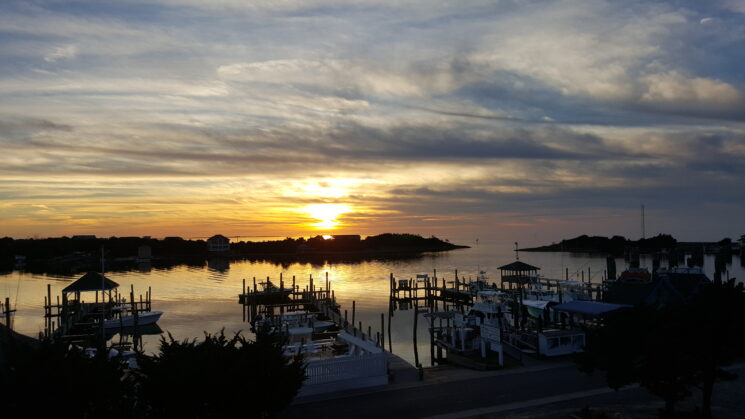
Welcome to the newest online issue of Scotch Bonnet. This marine education newsletter also is available as a PDF, if you’re like me and want to keep a hard copy.
By the time you read this issue, I’ll be very near to my retirement date! After more than 35 years of service to the state of North Carolina (18+ with the N.C. Aquarium on Roanoke Island and 17+ with N.C. Sea Grant), I have many extracurricular projects on my to-do list and numerous beach walks in my future.
If you’re curious to read some of my reflections on science in general, and marine education in particular, check out this Q&A in the Winter 2021 issue of Coastwatch.
Thanks to Sydney Brown, Megan Davis, Melissa Dowland, Elizabeth Joyner, Gail Lemiec, Harris Muhlstein, and Dana Thomason for their contributions to this issue. Wishing you all wonderful winter and spring seasons!
As you explore this new issue of Scotch Bonnet, you will notice professional development opportunities and family adventures for everyone. Take advantage of these wonderful conferences, workshops, and more, especially if you’re working on your environmental education (EE) certification, or if you need continuing education units (CEUs). Even during this pandemic, there’s a lot going on in North Carolina and beyond!
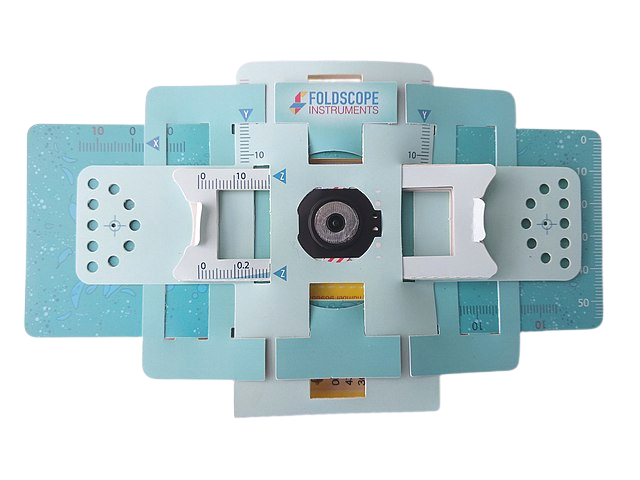
Photo by Sockenpaket/CC BY-SA 4.0 International
The MarineQuest team at the University of North Carolina, Wilmington, came across a cool scientific tool that they’re excited to recommend to teachers and students: the Foldscope. The device is an inexpensive, portable microscope made of paper components, magnetic elements, and a lens. Strong enough to magnify a sample 140 times, the Foldscope is also resistant to wear and tear. The inventors’ mission is to make science more accessible around the globe.
The following videos, created by MarineQuest, use a Foldscope to examine:
For more information on MarineQuest School programs, visit the MarineQuest website. Feel free to contact Harris Muhlstein, the MarineQuest school programs coordinator, at muhlsteinh@uncw.edu, with any questions related to our program offerings and/or our Foldscope experiences.
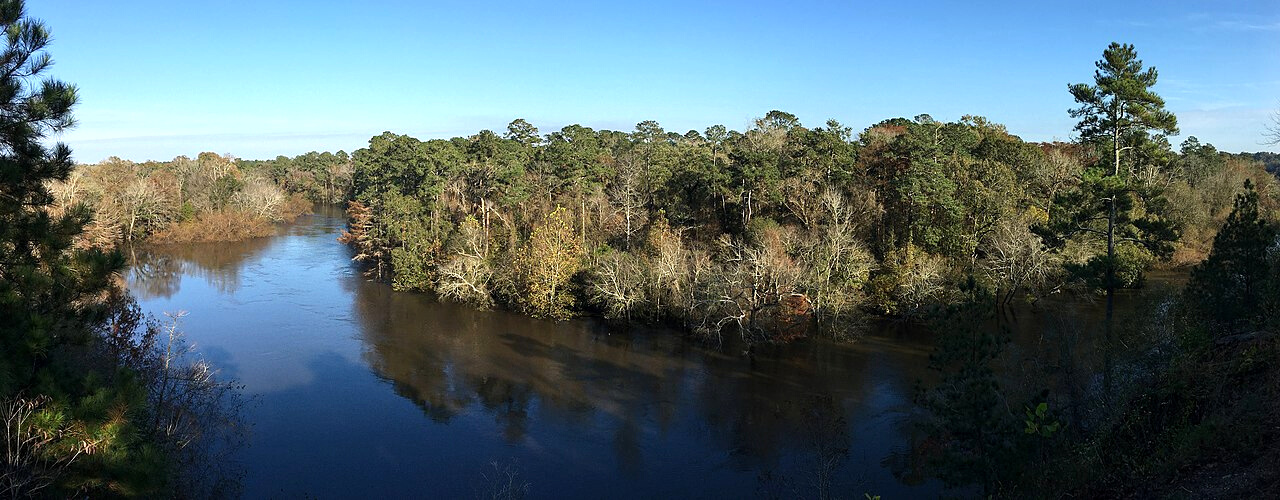
View of the Neuse River from the overlook in Cliffs of the Neuse State Park. Photo by Fredlyfish4/CC BY-SA 4.0 International
Free, Virtual Programs with the N.C. Museum of Natural Sciences
The museum offers a variety of free, virtual workshops for educators who want to help students explore the natural world in their own backyards. Each workshop includes a short introductory video and follow-up assignments to get outdoors and explore your “nature neighborhood.”
Do these sessions at your own pace — all the resources and materials are available on an ongoing basis. Receive credit towards CEUs or EE certification (Criteria 2). See the listing of topics and descriptions.
A new workshop, Insect Investigations, was added recently. Practice collecting and identifying local insects, create your own arthropod, and more!
Virtual Educator Trek: Early Childhood Dinosaur Science Discovery
Attend a free, virtual professional development workshop on Feb. 2, 4, or 11, from 7 to 8:30 p.m., to learn how to capture young children’s excitement about the latest dinosaur discoveries. Eligible teachers will receive dinosaur-themed science, math, and literacy materials together worth $100 for their classrooms.
Book a Dino-mite Museum Experience for Your Students
We offer virtual dinosaur programs for 3- to 5-year-olds. Eligible classrooms can partner with the museum for a free, three-part dinosaur experience:
Dino Programs Eligibility: Any early childhood educator may participate in workshops or book a program, but those who meet the following eligibility requirements and participate fully will also receive materials for their classrooms and their students’ families:
If you teach in another N.C. county, please contact jan.weems@naturalsciences.org for details. If you have any questions or would like more information about this initiative, please contact earlychildhood@naturalsciences.org.
Educator Treks with the N.C. Museum of Natural Sciences (In-person, Outdoors)
What: Nature Journaling in Your Nature Neighborhood
When: Saturday, March 6; 9 a.m. to 5 p.m.
Where: Cliffs of the Neuse State Park, Wayne County
Cost: $25 deposit; returned, along with a $25 travel stipend, upon completion of
workshop
Examine ways to share the natural world with your students through nature journaling. Practice various journaling techniques as we explore plants and animals that can be found in most backyards, schoolyards, or local parks. Discover cross-curricular connections through activities that can be used in virtual and in-person classrooms.
To participate in this workshop, you must be a teacher, guidance counselor, media coordinator or assistant principal in a public school from one of the following counties: Beaufort, Bertie, Bladen, Chowan, Columbus, Duplin, Edgecombe, Gates, Greene, Halifax, Hertford, Hoke, Hyde, Jones, Lenoir, Martin, Nash, Northampton, Pasquotank, Perquimans, Robeson, Sampson, Scotland, Tyrrell, Warren, Washington, Wayne, Wilson, Vance.
This workshop is sponsored by the Simple Gifts Fund.
Health and safety precautions:
What: Spring on the Millpond
When: Saturday, March 27, to Sunday, March 28
Where: Merchants Millpond State Park, Gates County
Cost: $85 (includes camping fees, canoe rental, some meals)
Paddle across dark waters and between twisted trees, and leave your worries behind! Join us for a one-night canoe camping adventure on Merchants Millpond as we discover the wonders of the bottomland hardwood ecosystem. Take time for observation, reflection, and renewal as the first hints of spring arrive in the swamp. Participants are encouraged to bring their own sleeping bag, but the museum can supply most other camping gear you might need.
Health and safety precautions:
What: Teachers on the Trail
When: Friday, April 23, 12 p.m., to Sunday, April 25, 3 p.m.
Rain dates: April 30 to May 2
Where: South Mountains State Park, Burke County
Cost: $125 (includes camping fees and most meals)
Join us for a backpacking adventure designed just for educators! Explore the ecology of the Blue Ridge foothills, discuss outdoor leadership, and learn backcountry camping skills. Expect strenuous hikes of up to 6 miles a day, with elevation gains of ~1500 feet, while you carry a full pack. The museum can supply most camping gear, but participants should have their own backpack (~50 pounds) and sleeping bag. (However, if you don’t have a pack, sleeping bag, or pad, and you can’t borrow or buy these items, let us know, and we might be able to help you out).
Health and safety precautions:
2021 Educators of Excellence Institutes (In-person, Outdoors)
What: Blue Ridge Institute
Applications are due Monday, Feb. 15.
Visit the museum website for applications.
Participating educators will study and experience the wonders of North Carolina’s Blue Ridge Mountains. Join us as we traverse the Blue Ridge Parkway from Cherry Lane to Cherokee, exploring the wonders of this incredibly biodiverse region of North Carolina. Learn from scientists and other experts about the ecology, geology, history, and culture of the Blue Ridge. Connect with nature, gain experience in outdoor leadership, and build camaraderie with other outstanding educators as we camp at multiple sites during our adventure. Discover strategies for bringing the natural history of North Carolina to life in your classroom. During the trip, participants will provide daily updates to N.C. students via a blog.
When: This institute will be offered twice:
July 8 to 16
(Mandatory orientation meeting in Raleigh or virtually on March 13. Mandatory post-trip session in Raleigh on Nov. 6.)
July 29 to Aug. 6
(Mandatory orientation meeting in Raleigh or virtually on March 20. Mandatory post-trip session in Raleigh on Nov. 6.)
Where: Multiple sites in western North Carolina and Raleigh
Group Size: Limited to 8 to 9 participants
Activity Level: Moderate to rigorous, including camping most nights, walking and hiking on uneven terrain, and swimming and snorkeling in mountain streams
Cost: $400 (includes campsites and lodging, most meals, instruction, and supporting materials.) The museum can lend most camping gear if you do not have your own. To allow for social distancing and other safety protocols, participants will each have their own tent or room and will travel to each site in their own vehicle. At the conclusion of the institute, the museum will provide a $200 stipend to cover transportation costs.
Health and safety precautions:
ncaquariums.com/roanoke-island
This winter and spring, the N.C. Aquarium on Roanoke Island is focusing its educational efforts on distance learning and virtual opportunities.
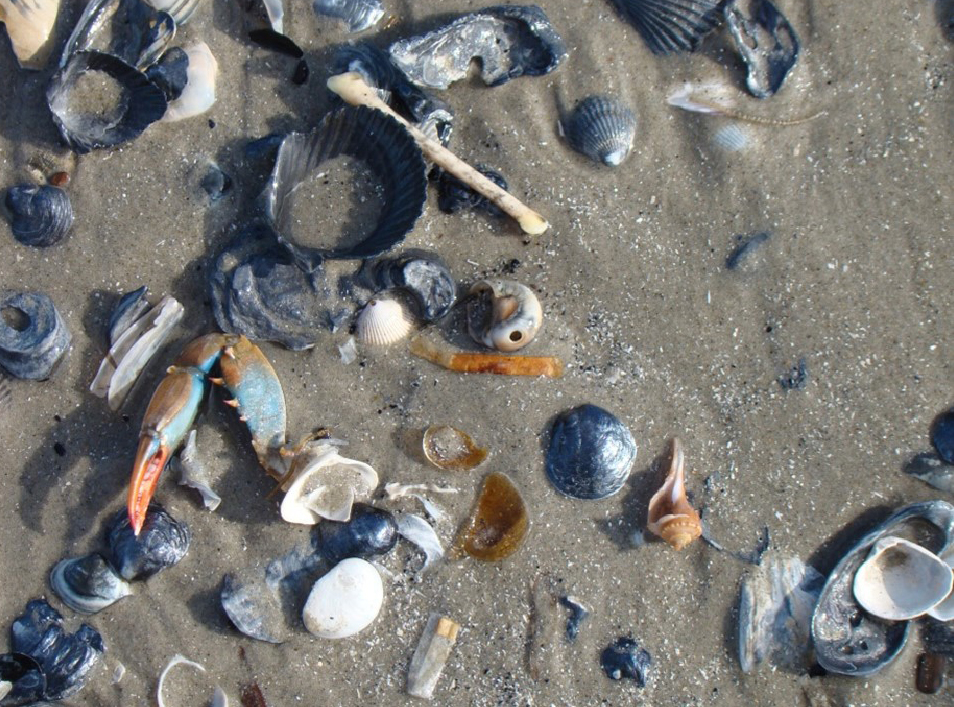
Photo by Terri Kirby Hathaway
Programming
For distance learning programming featuring program titles like Got Fur?, Back to Basics, Get to Know: Owls, and more, visit the aquarium website. Contact outreach coordinator Rhana Paris at 252-475-2344 or rhana.paris@ncaquariums.com, or complete an outreach request form.
Self-Guided Learning
On the Fun and Learning page, download coloring sheets, instructions for drawing animals, and puzzles, or check out a book from the aquarium’s virtual bookshelf.
Animal Drop-Ins
Create a splash at a corporate meeting, birthday, bridal shower, or other event by having an animal drop in virtually. To schedule a virtual aquarium animal cameo presentation, contact education curator Dia Hitt at 252-475-2318 or andrea.hitt@ncaquariums.com.
mynasadata.larc.nasa.gov/lesson-plans/ocean-circulation-patterns-garbage-patches-story-map
Using various visualizations (e.g., images, charts, and graphs) and NASA data, students can explore the connection between ocean circulation patterns and ocean garbage patches. Students will investigate the forces that contribute to ocean circulation patterns and how debris (especially plastics) travel from land to garbage patches. Students will also analyze regional plastic production and waste management data to describe how humans have contributed to ocean plastic pollution. This story map, targeted at middle and high school students, incorporates Google Forms and Jamboards to help make the virtual instruction engaging and fun!
My NASA Data is part of the GLOBE Mission Earth “Science Activation” project, a collaborative of multiple institutions across the United States, formed to increase teacher-student involvement in the GLOBE Program and connect to NASA assets. Questions? Please contact My NASA Data, NASA Langley Research Center, larc-mynasadata@mail.nasa.gov.
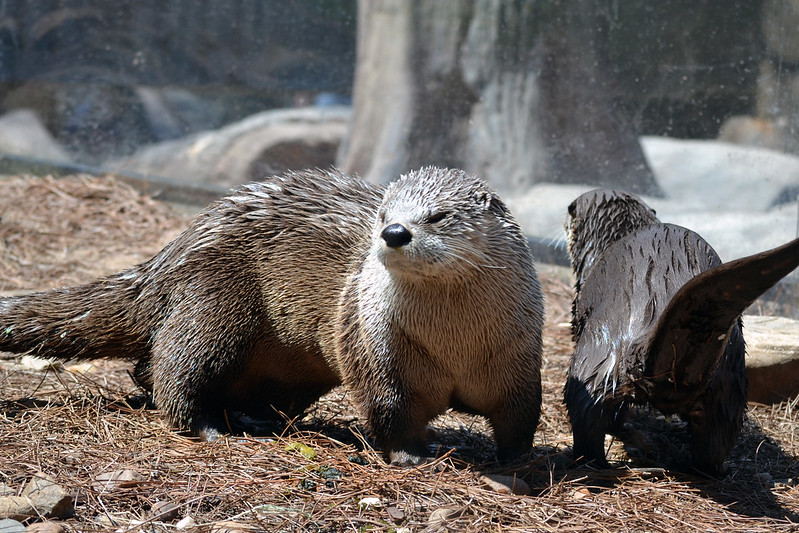
River otter. Photo by Heather Miller/flickr/CC BY-NC 2.0
The North Carolina Wildlife Resources Commission is happy to loan educational wildlife boxes to N.C. educators. These loaner boxes will allow you to bring a little bit of the wild into your teaching space with no associated cost for teachers. Please see loaner box options below:
Magnificent Mammals – Grades 4 to 8
Materials included:
Dove Decoy – Middle and High School Sciences
Materials included:
If you wish to request a loaner box or would like more information, please email wrceducation@ncwildlife.org.
Join your fellow marine educators and beach lovers at one — or more — of these great learning opportunities planned for the future.
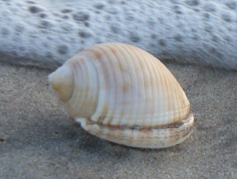 |
International Beachcombing Conference thebeachcombingconference.com June 11 to 16 Annapolis, Maryland |
 |
Mid-Atlantic Marine Education Association Annual Conference
|
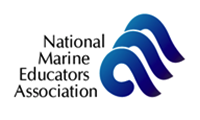 |
National Marine Educators Association’s Annual Conference marine-ed.org July 21 to 25, 2022 Hofstra, NY |
 |
Environmental Educators of North Carolina Annual Conference
|
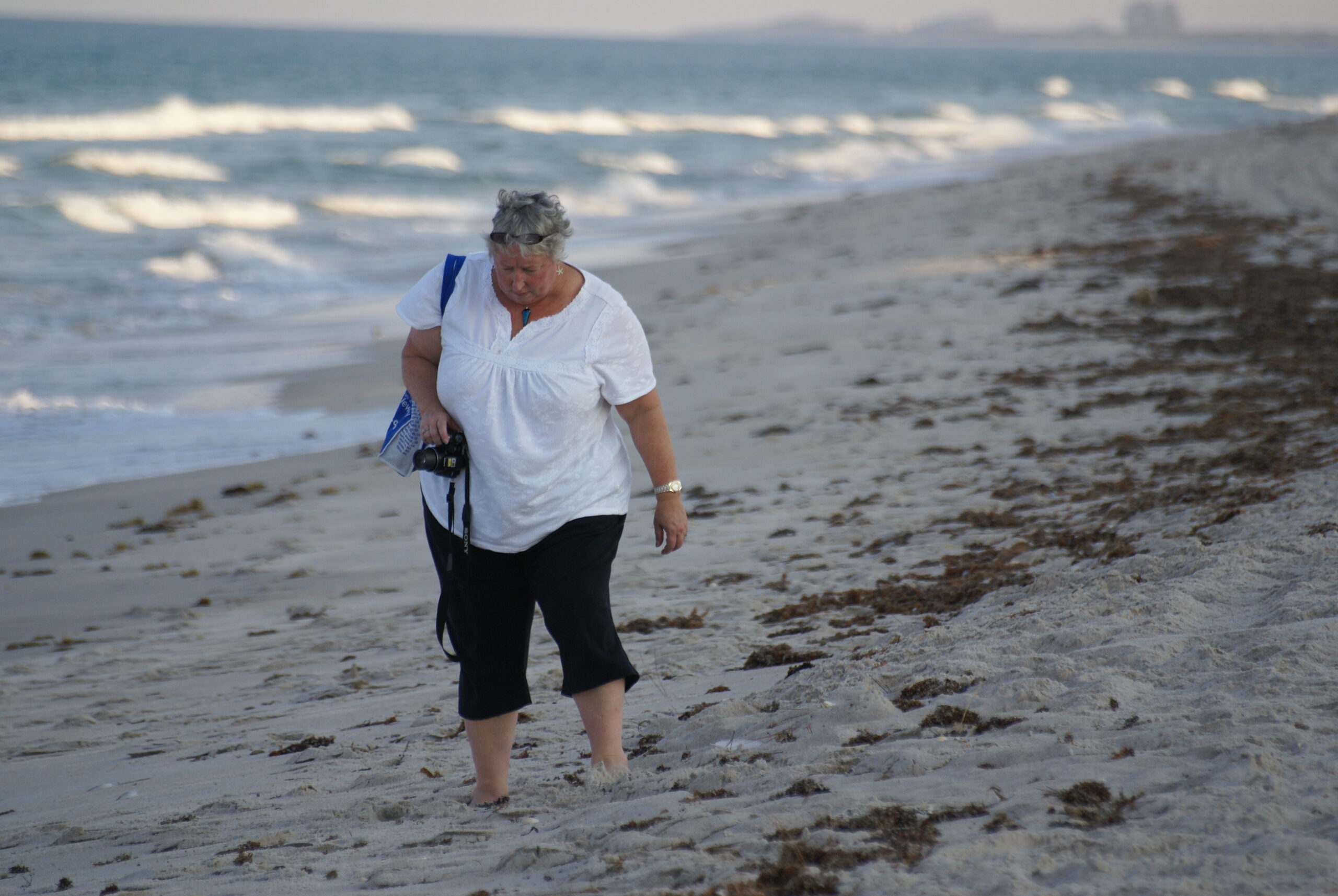
Terri Kirby Hathaway beachcombing.
If you ever have information to share with other marine educators, please don’t hesitate to send it my way. I’ll collect material for inclusion in a future issue of Scotch Bonnet by my successor. Continue to let me know what you’re hearing from the sea by using my personal email, noted below.
Please share this website or newsletter with others, and please stay in touch! Thanks for all you do for students and for other educators!
Best Fishes!
Terri Kirby Hathaway
Email: terrikhnc@gmail.comu